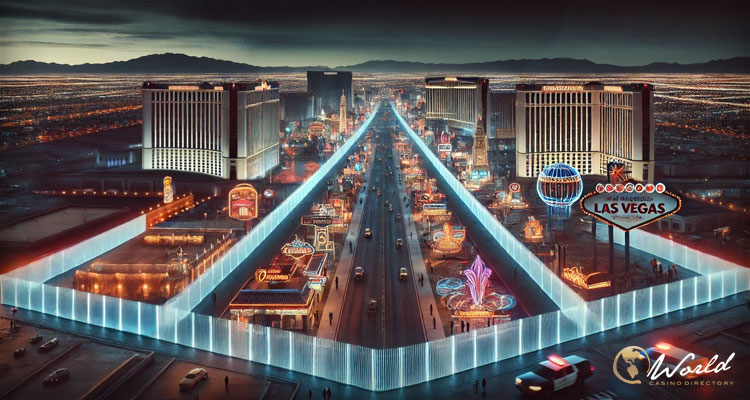
The Las Vegas City Council has approved the expansion of its order-out corridor, which allows judges to ban individuals convicted of misdemeanors from specific tourist areas. The decision, which adds an additional 29 acres to the restricted zone, now includes the Plaza Hotel and Main Street Station parking garage. This move is part of ongoing efforts to reduce crime in high-traffic tourist corridors like Fremont Street.
Proponents argue the measure is essential for maintaining safety in these areas, but it has sparked criticism from civil rights groups. The American Civil Liberties Union (ACLU) of Nevada voiced strong opposition, claiming the expansion may be unconstitutional and could lead to further legal complications. The ACLU’s concerns come as a similar Clark County ordinance is currently being challenged in court.
The Expansion and Legal Controversy
The order-out corridor allows courts to ban individuals convicted of certain offenses, such as trespassing and battery, from designated tourist zones. By extending the boundaries, Las Vegas aims to curb criminal activity without resorting to lengthy jail sentences. City Attorney Jeff Dorocak, cited by Las Vegas Sun, explained that the ordinance is intended for repeat offenders, who often cycle through the criminal justice system for minor offenses.
The ordinance, first introduced in 2023, has already shown measurable results. Data presented to the city council in July highlighted a 10% reduction in crime victims in the Fremont Street corridor. Metro Police Captain Adam Seely pointed to a significant decrease in incidents near the Strat, attributing the improvement to the order-out policy. “We’re talking about fewer victims of crime,” Seely noted. “I do believe it is a result of the partnership and the policing that we’ve been doing in both areas.”
However, the ACLU remains critical of the program’s expansion. The organization argues that broadening the scope of the order-out corridor before the legal challenges against Clark County’s similar ordinance are resolved is premature. Tia Smith, an attorney with the ACLU of Nevada, cautioned the city council against moving forward without judicial clarity. “Expanding the order-out corridor boundaries before the constitutionality of the ordinance is decided would be premature and could lead to further legal complications,” Smith said during the meeting.
Concerns Over Constitutional Rights and Profiling
The ACLU has raised concerns about the potential for the order-out policy to infringe on First Amendment rights. The civil liberties group points to the case of Ackeem Ramsay, a man on supervised probation who was banned from the resort corridor in Clark County, as an example of how such policies could violate constitutional protections. Ramsay’s case, which the ACLU is supporting, argues that barring individuals from public spaces due to misdemeanor offenses limits their freedom of movement and expression.
The ACLU also criticized the ordinance’s “dangerously vague” language, particularly its case-by-case approach to granting exemptions. Exemptions are theoretically available for those who live or work in restricted areas, as well as for individuals seeking medical or legal services, accessing social programs, or attending religious services. However, the ACLU argues that the lack of clear guidelines could lead to inconsistent enforcement and potential profiling of marginalized groups, such as the homeless, street performers, and protestors.
Results and Future Implications
Despite these concerns, the city council has remained supportive of the expanded order-out corridor. From November 2023 to June 2024, the city issued 246 order-out directives, with trespassing, battery, and disturbing the peace among the most common offenses. Of those offenders, 81 were jailed for violating the order, with more than half identified as experiencing homelessness.
The expansion is intended to build on the success of the initial corridor, which led to a decrease in criminal activity in key areas like Fremont Street. However, the debate over its legality continues, as civil rights advocates argue that the policy disproportionately targets vulnerable populations and could face further legal scrutiny.
In India, cricket is by far the most popular sport, and sports betting often peaks around major cricket tournaments like the IPL (Indian Premier League), ICC World Cup, or Test series. Other popular sports for betting include football, kabaddi, and horse racing.
The best time to play stake in India depends on several factors, including the type of game you're playing, the events or promotions running, and your personal gaming habits. To get the most out of your betting or casino experience, consider playing during peak sports events, taking advantage of promotions, or opting for off-peak hours for more relaxed play.
Whether it’s a cricket match, a weekend casino bonus, or the perfect time to place your bets, timing can make all the difference in your gaming success.





